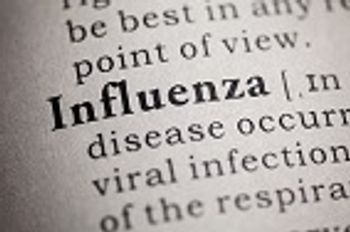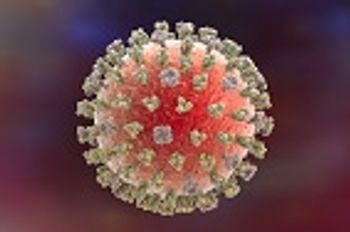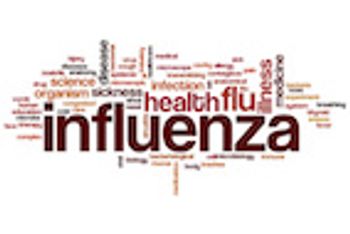
A defense mechanism by which plants and animals fight off RNA viruses was recently observed in human cells for the first time, offering researchers a look at new ways to treat viral diseases.

A defense mechanism by which plants and animals fight off RNA viruses was recently observed in human cells for the first time, offering researchers a look at new ways to treat viral diseases.

While flu vaccination rates for pregnant women have more than doubled since 2005, a new report from the Centers for Disease Control and Prevention says that at least half of expectant mothers are missing out on the protective benefits of the flu shot.

In honor of National Influenza Vaccination Week, the CDC reports on influenza vaccination coverage and the benefits of receiving a flu shot.

The CDC’s NCHS released its mortality report on life expectancy and leading causes of death for adults and infants in 2015.

Researchers discover a simple method for estimating fitness of antiviral-resistant influenza strains using surveillance data.

A new pair of studies take a look at the human immune response to the flu vaccine and explain how the flu components may affect the shot’s effectiveness.

University of Arizona researchers look at important trends related to infectious disease mortality in the United States.

Researchers at the Mailman School of Public Health at Columbia University are the first to develop a computer model that predicts influenza activity down to the local level.

Ten years ago in Geneva, the World Health Organization (WHO) unveiled what is now called the Global Action Plan for Influenza Vaccines (GAP), a comprehensive approach to meeting the demand for vaccines should there be a pandemic anywhere in the world. How is it doing?

Thomas Frieden, MD, MPH, director of the CDC, and Susan Desmond-Hellmann, MD, chief executive of the Bill and Melinda Gates Foundation discuss how governments and business organizations should prepare for pandemics, especially a potential influenza pandemic.

Recent outbreaks of highly pathogenic H5N8 avian influenza in Northern Europe, Russia, and the Middle East are worrying neighboring countries and have led to the culling of tens of thousands of chicken, turkeys, and ducks.

A recent outbreak of highly pathogenic avian influenza in commercial chickens and ducks in South Korea has health officials in the country on high alert and some poultry farmers taking quarantine measures.

A recent study shows that a person’s birth year may predict his/her chances of surviving an influenza A virus pandemic.

University of California and Stanford University researchers have identified how temperature and humidity work together to affect flu season.

The Centers for Disease Control and Prevention (CDC) has identified 18 cases of new swine flu viruses in Ohio and Michigan state fair attendees, highlighting the need for precaution when handling pigs.

Rebekah Stewart Schicker, MSN, MPH, APRN, Epidemic Intelligence Service (EIS) Officer at the Centers for Disease Control and Prevention, explains her recent research on influenza antiviral treatment prescribing practices in 60 outpatient settings across the United States.

Researchers in the United States and South Korea recently studied the use of an experimental nanoparticle treatment that acts as a decoy to stop and kill the influenza virus.

Public-health experts recommend that the seasonal influenza vaccine be available in more non-medical settings in hopes that with increased accessibility, more people will choose to get vaccinated.

Rebekah Stewart Schicker, MSN, MPH, APRN, Epidemic Intelligence Service (EIS) Officer at the Centers for Disease Control and Prevention, National Center for Immunization and Respiratory Diseases, Influenza Division, explains how antiviral flu treatments may be affecting patients in the outpatient setting.



Rebekah Stewart Schicker, MSN, MPH, APRN, Epidemic Intelligence Service (EIS) Officer at the Centers for Disease Control and Prevention, National Center for Immunization and Respiratory Diseases, Influenza Division, discusses which outpatient populations are at highest risk of influenza-associated complications and the recommended treatments for these individuals.

As the flu hits New Mexico, hundreds are reporting symptoms, while infection has only been lab-confirmed in two cases.

The first influenza cases of the 2016-2017 season were reported by the Minnesota Department of Health, a reminder for state residents to receive influenza vaccination.

Stephen Redd, MD (RADM, USPHS), Director of the Office of Public Health Preparedness and Response (OPHPR) at the Centers for Disease Control and Prevention (CDC), discusses the 2016-2017 flu vaccine.